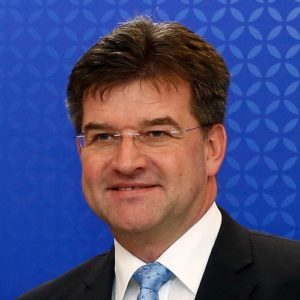Coming soon
Upcoming Event in December:
UAS Trends and Expectations – A Collaboration with the Ministry of Defence
The Institute for Central Europe is excited to announce a significant upcoming event this November, organized in collaboration with the Ministry of Defence of the Slovak Republic. This event will serve as a forum for discussion on one of the most critical technological advancements shaping modern defense strategies: unmanned aerial systems (UAS).
As UAS technology rapidly evolves, the implications for defense, security, and broader strategic operations grow more complex. The November event will focus on several key aspects:
- Trends in UAS Technology: Exploring the latest developments in UAS design, capabilities, and applications within defense.
- Lessons Learned: Analyzing real-world case studies and experiences from recent UAV deployments, particularly within European defense contexts.
- Expectations and Needs of the Slovak Ministry of Defence: A deep dive into the strategic priorities, challenges, and requirements of the Ministry as it looks to further integrate UAS technology into its operations.
This event promises to gather industry leaders, defense experts, and policymakers, creating a platform for insightful discussions on the future of UAS in defense.
Stay tuned for more details in the coming weeks, including confirmed speakers, event schedules, and registration information. We look forward to seeing you there!
NEWS
Environmental Changes and Migration: Bridging Disciplines for a New Research Agenda
Liège, 9.-12.7.2024
The Acronym Project recently hosted its second annual conference on asylum and migration, titled “Environmental Changes & Migration: Bridging Disciplines for a New Research Agenda,” in Liège, Belgium. The event aimed to gather researchers from various disciplines, policy-makers, and practitioners to foster a multidisciplinary dialogue on migration and asylum governance.
The conference opened with a ceremony at the Liège Theater titled “Climate Justice, Democracy, and Migration Governance” featuring esteemed speakers including Julie Fernandez (Echevin en charge des Solidarités, City of Liège), Pierre Duysinx (Vice-Rector for Mobility and International Affairs, University of Liège), Katarína Csefalvayová (Director of the Institute for Central Europe), and François Gemenne (Director of the Hugo Observatory, University of Liège) who opened the conference and welcomed the guests.
A highlight of the evening was the discussion “Colonizing the Future: Climate Justice, Democracy, and Migration Governance,” led by François Gemenne. Distinguished guests included David van Reybrouck (Historian and Author), Mohamed Nasheed (Secretary General of the Climate Vulnerable Forum, Former President of the Maldives), Saber Hossain Chowdhury (Minister for the Environment, Forest and Climate Change, Bangladesh), Sandrine Dixson-Declève (President of the Club of Rome), and Katarína Csefalvayová who discussed the historical aspect that affect contemporary migration flows, international responses to migration but also role of markets, loss and damage and many other aspects that influence international migration. Last but least, Christian Kaelin, Founder and Chairman of the Andan Foundation, concluded the evening by presenting his new book, “Citizenship and Human Rights.”
ČÍTAJ VIAC: https://iceoz.sk/environmental-changes-and-migration-bridging-disciplines-for-a-new-research-agenda/
Events

Projects

Publications

They said about us

“Today, no country in Europe can pretend that it can solve problems on its own. Every important issue in Slovakia has a European context. I believe that ICE activities will be a good contribution to understanding and unity in Europe. I have known Martin for many years and I know how much he cares about Europe being strong in terms of security and Slovakia being a stable and reliable part of it.“






“With every European summit nowadays looking like a Shakespearean tragedy, bridging the gap between Western, Central and Eastern Europe is becoming a question of the survival of the European Union. In this cheerless context, the birth of the ICE is more welcome than ever. The Institute brings exactly what the current intellectual and political debates in Europe desperately need: tools and materials to promote better understanding across the continent.”





Partners

















